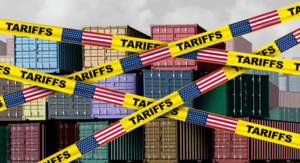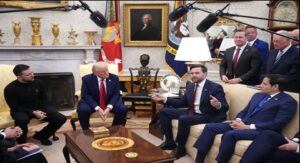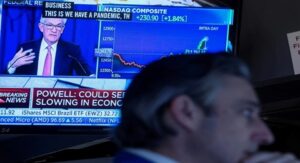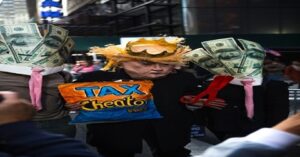
Global Political Instability Signals for Rethinking Political Economics
Global political instability looms large as the world faces unprecedented disruptions in global supply chains, unraveling market structures, and escalating conflicts. This instability underscores a crucial question: why does mainstream economic thinking falter despite vast data influx?
The lack of theoretical exploration, coupled with the overemphasis on mathematical models over empirical analysis, hinders effective policymaking. Historical precedents, like the Industrial Revolution, highlight the necessity of paradigm shifts in economic thought.
As we stand on the brink of another transformation, embracing a holistic approach rooted in political economy and game theory offers a pathway to understanding and navigating the complexities of our rapidly evolving global landscape.
Global Political Instability
In the midst of escalating global uncertainties and economic upheavals, the world finds itself at a pivotal juncture. The once-stable structures supporting global markets and international trade are faltering under the strain of increasingly frequent disruptions to supply chains.
This instability not only threatens economic well-being but also permeates into other domains, exacerbating conflict and polarization on the political stage. In this tumultuous landscape, it is imperative to scrutinize the prevailing economic paradigms and contemplate a paradigm shift to navigate the complexities of the contemporary world.
Table of Contents
Read More: Geopolitical Tensions and Economic Projections in 2024
1. Challenges to Mainstream Economic Thinking
In an era flooded with data and characterized by global political instability, traditional economic theories and policies appear inadequate to tackle contemporary challenges. Relying heavily on mathematical models divorced from real-world contexts has severed the link between economic theory and practical solutions. Consequently, a consensus is emerging: a pivot is imperative.
This shift demands a departure from abstract modeling towards empirical analysis rooted in data-driven revelations. Embracing this change promises a more effective approach to confronting the complexities of today’s economic landscape, where mere theoretical conjectures fall short in the face of dynamic realities.
Read More: Global Banking Turmoil: A Global Financial Crisis
2. Lessons from Historical Paradigm Shifts
History provides crucial insights into the development of economic ideologies amid transformative eras, exemplified by the Industrial Revolution. This period witnessed profound technological strides that altered economic landscapes, prompting the emergence of novel theories and policy frameworks.
The contributions of esteemed economists such as Adam Smith and Léon Walras were pivotal, establishing the fundamentals for comprehending and managing industrial economies. Their works underscored the necessity of adjusting theoretical paradigms to evolving circumstances, highlighting the dynamic nature of economic thought.
In the backdrop of global political instability, examining such historical junctures becomes even more crucial as contemporary scholars glean indispensable lessons on navigating economic shifts and crafting effective strategies for future challenges.
Read More: Red Sea Crisis: A New Threat to Global Inflation and Supply Chains
3. Critique of Neoclassical Economics
The stronghold of neoclassical economics, centered on perfect information and mathematical models, faces mounting scrutiny due to empirical revelations of information imbalance and global political instability.
Esteemed economists, including Nobel laureates George Akerlof, Joseph Stiglitz, and Michael Spence, have spearheaded this critique, catalyzing a shift in paradigm. Their work illuminates the prevalence of information asymmetry, demanding a reevaluation of economic principles.
This significant insight underscores the necessity for policy frameworks that acknowledge market imperfections and the inherent inequalities in information dissemination. As a result, there’s a growing acknowledgment of the importance of addressing these asymmetries in economic theory and practice.
4. The Impact of Technological Revolution
The relentless march of the digital era and the ascent of artificial intelligence are fundamentally altering the economic terrain, ushering in fresh dynamics and hurdles, amidst global political instability. Yet, policymakers lag in adjusting, resorting to reactive responses instead of forward-thinking strategies.
Navigating this transformative landscape demands economists to concentrate on analyzing nascent technological paradigms and their ramifications on markets and trade. To flourish in this evolving environment, it’s imperative to grasp the intricacies of these shifts and devise proactive measures that align with the evolving digital ecosystem, ensuring resilience and competitiveness in the face of technological disruption.
Read More: Global Economic Instability: The Biggest Threat
5. Reviving Political Economy
Exploring the foundational principles of political economy presents a fruitful avenue for tackling the intricate relationship between economic and political realms, amidst global political instability. Traditional demarcations between these spheres have obscured our comprehension of intricate socio-economic dynamics. By amalgamating game theory insights with a rekindling of classical political economic thought, economists can forge a comprehensive framework for policy analysis and formulation.
This return to roots not only enriches our understanding but also empowers us to navigate and influence the intricate interplay of economic and political forces, fostering more nuanced and effective strategies for addressing contemporary challenges.
Read More: The Economics of War: A Comprehensive Analysis
6. Toward a New Economic Paradigm
In light of pressing global economic challenges and amidst global political instability, there’s a call for a paradigm shift towards interdisciplinary solutions. This entails prioritizing empirical research over solely relying on mathematical models, recognizing their constraints. Moreover, integrating economics with politics is crucial for crafting resilient economic strategies that enhance societal welfare amidst rapid transformations.
Embracing this approach fosters a new trajectory, steering us towards economic resilience and societal well-being. By embracing empirical methods, acknowledging the shortcomings of mathematical modeling, and reconnecting economics with politics, we pave the way for a more adaptive and inclusive economic landscape in the face of unprecedented change.
Read More: Geopolitics of Economic Development in the Middle East
Bottom Line
In conclusion, the current juncture, marked by global political instability, presents an opportune moment for rethinking and revitalizing economic paradigms. By learning from historical shifts, acknowledging the shortcomings of existing theories, and embracing interdisciplinary collaboration, economists can chart a course towards a more inclusive and adaptive framework capable of addressing the multifaceted challenges of the modern world.
Only through a concerted effort to bridge the gap between theory and practice can we hope to navigate the complexities of the global economy and foster sustainable growth and prosperity for all.





